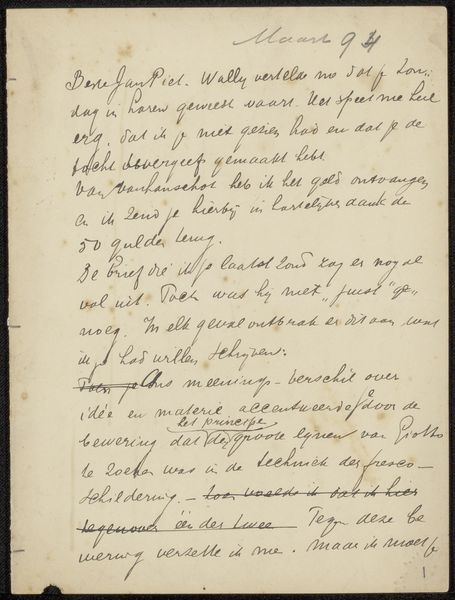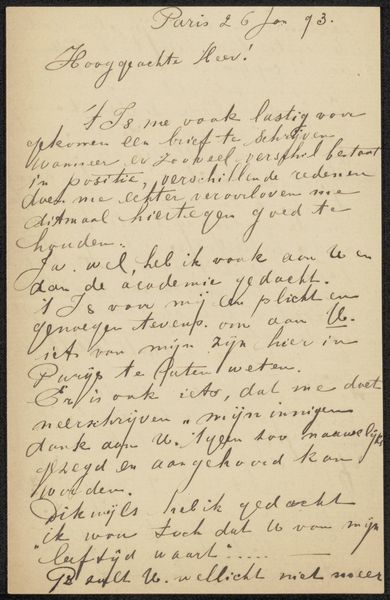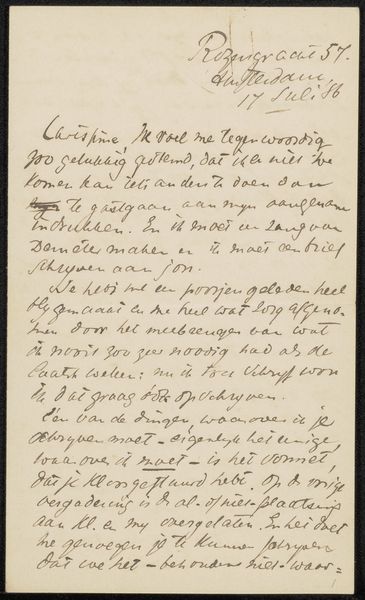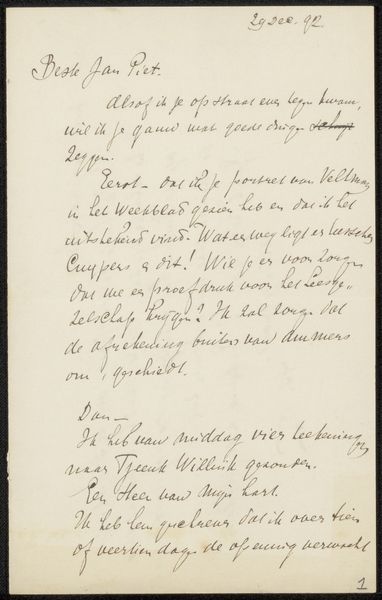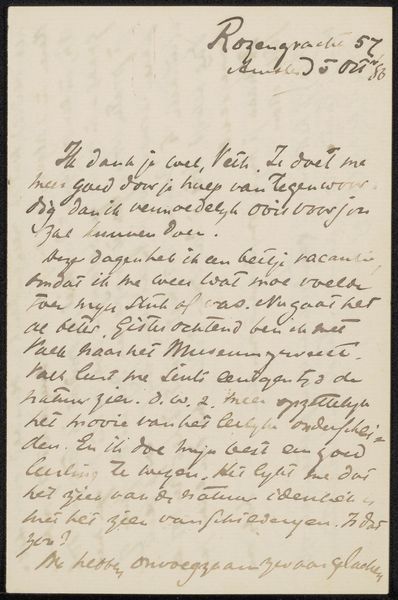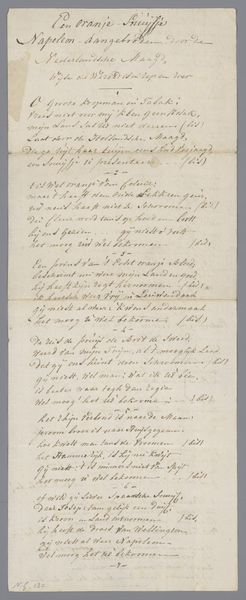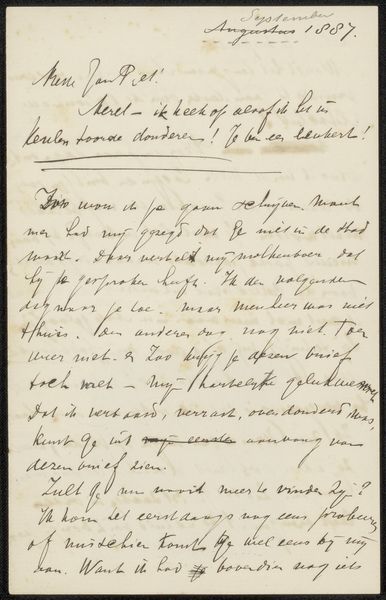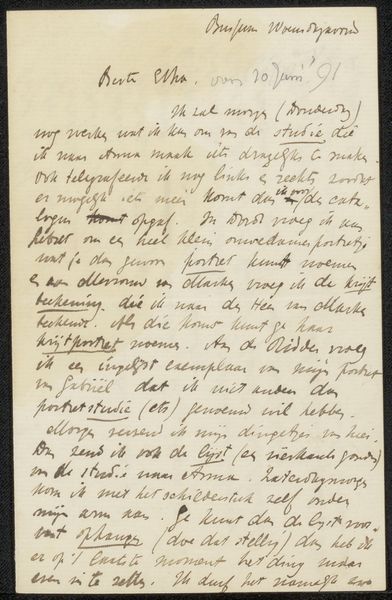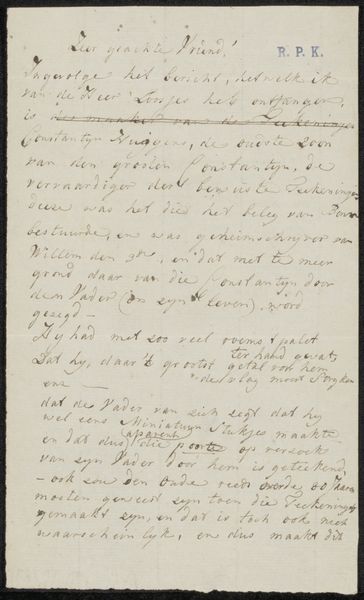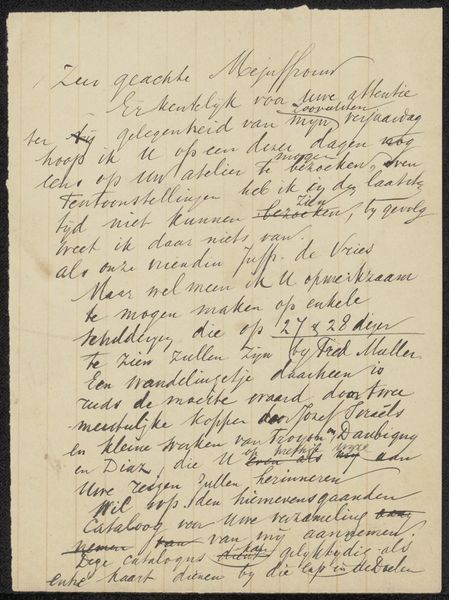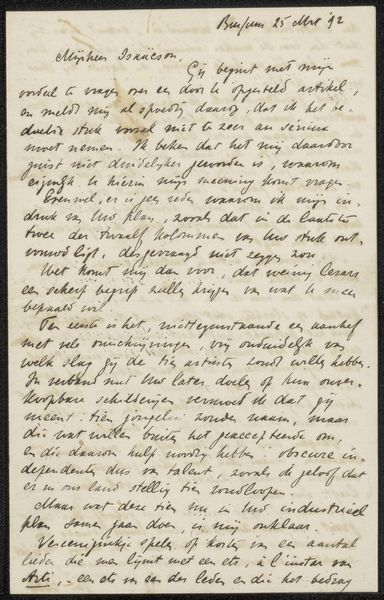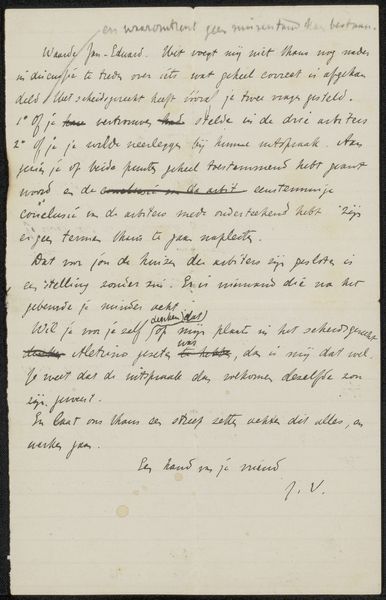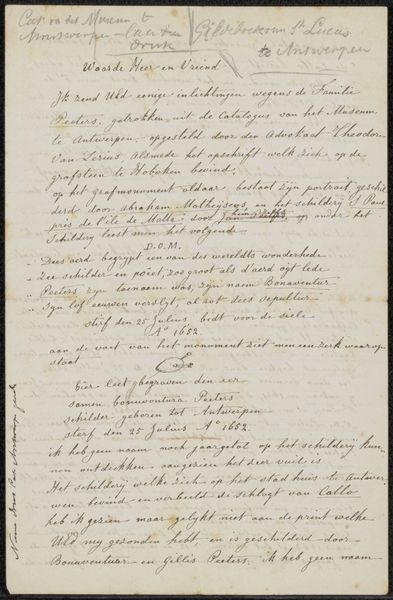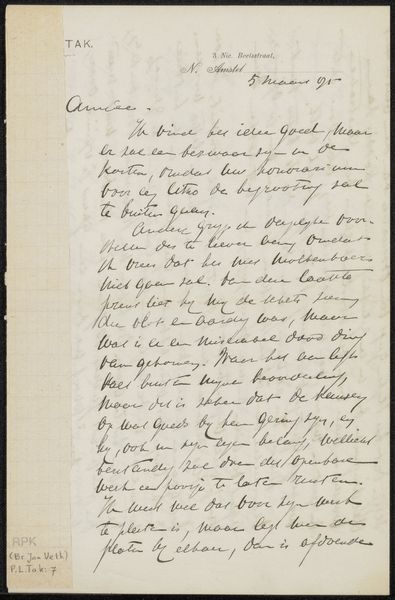
drawing, ink, pen
#
drawing
#
hand-lettering
#
hand lettering
#
ink
#
pen work
#
pen
Copyright: Rijks Museum: Open Domain
Curator: Before us, we have "Brief aan Jan Veth" by Antoon Derkinderen. The piece, believed to have been created sometime between 1874 and 1925, showcases Derkinderen's proficiency with ink on paper, specifically utilizing both pen and drawing techniques. It appears to be a handwritten letter. Editor: My first thought is… intimacy. The looping script, the almost faded ink – it feels like a glimpse into a very private moment. Almost voyeuristic, wouldn't you say? Curator: Indeed. Analyzing this through a historical lens, it is key to recognize the significance of letter writing during that period. These weren't just simple notes; they served as primary means of communication. Examining the content—the specific mentions of "contract" and "commissie" suggests involvement in a collaborative project and reveals potential business or artistic endeavors in Antoon Derkinderen’s professional world. Editor: Yes, exactly! You sense the business undercurrent immediately, but the handwritten nature gives it a soft focus, almost sentimental. Do you notice how certain words are underlined? "belang," and "niet verzwakt" jumping out. There is some emotion seeping into his correspondence. Curator: Definitely, and note the repeated references to various people. Figuring out Jan Veth's relation to Antoon, in an environment like this might expose elements of shared professional ambition versus social relation or something even like artistic partnership. The date listed at the top – 'December '92?', albeit incomplete, pinpoints to specific social happenings and contextualizes the missive. Editor: So interesting! Imagine reading this and being utterly privy to these shared experiences, and the delicate dance of building creative working arrangements. Curator: Considering this work, we must think about societal position in these arrangements too. The social position, not just artistic merit or output determines access to a collaborative art scene. The gender relations must be parsed; the networks of professional relationships analyzed to get some semblance of what 'access' Derkinderen's actions have. Editor: It's so fascinating to unravel this personal yet professional piece. To know even some more of its social context deepens its mysteries. I will now want to deep dive to these peoples professional context, perhaps discover whether, artistically it actually mattered to them.
Comments
No comments
Be the first to comment and join the conversation on the ultimate creative platform.
